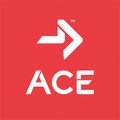How many clients do you have who train and train and train, yet make no progress with their weight-loss goals? With a mere two or three hours of personal interaction during the week, there is only so much we, as trainers, can do for these clients, right? WRONG. While creating a specific diet plan is outside of our scope of practice as a health and fitness professional, we should encourage our clients to track their food intake and activity so we can help them stay accountable for the other 165 hours of the week.
Ease of Use
I recall about 15 years ago having my clients carry around notebooks and ridiculously thick books of caloric values. Times sure have changed! If the folks you train are reluctant to take on the task of tracking their intake and activity, the MyFitnessPal app makes the whole process a whole lot easier to log both their food and their fitness.
The MyFitnessPal food database is packed full of thousands of food options, from homemade meals to dishes at most major restaurants. If a particular food or dish is not listed, you can easily “create a food” under the “my foods” tab or better yet, import a recipe from the web and the ingredients and nutrition information will show up, ready for you to log. If what you are eating comes from a package, the barcode scanner is a helpful tool for worry-free food tracking.
In the fitness and activity department, there are many exercises to choose from with general caloric values. If your workout of choice is not listed, it takes about 15 seconds to create a “new exercise,” which will be saved for regular activity logging. MyFitnessPal also connects to more than a dozen popular activity trackers to help keep all of your technology and tracking in one place.
How to Use the MyFitnessPal Data
Here are some ideas for how you can use the information from your clients’ logs to help them achieve their goals.
- Observe your client’s caloric intake and macronutrients through charts, graphs and a weekly nutrition summary. Without providing a specific meal plan, you can still ensure they are staying within their recommended caloric values and eating healthy proportions of their macronutrients. For your reference, here are the Institute of Medicine’s (IOM) Dietary Reference Intakes (DRI) for daily caloric intake:
Carbohydrates: 45-65%
Protein: 10-35%
Fat: 20-35% - Interact with any activities, completed food diaries and progress toward their goal. The small step of “liking” and commenting on completed food logs and fitness activities can be remarkably motivating for a client. These small interactions and a willingness to give expert advice outside of training appointments show you care and will help your clients turn tracking into a regular lifestyle activity.
- Create a challenge or encourage clients to join one of many free challenges offered through MyFitnessPal, which reward participants with badges and the chance at prizes for logging meals and completing workouts. If these seem to generic for you and your team, try creating your own challenge and giving out prizes based on number of meals and workouts tracked.
- Don’t get sucked in. You may be reading this thinking, “I spend enough time programming for my clients outside of their workouts. How on earth can I constantly track their food and activity logs 24/7?” The trick is to set aside a small amount of time at the end of the day to review your clients’ MyFitnessPal progress. Believe it or not, it only takes a few minutes. Additionally, if you are using MyFitnessPal to track your own progress, it is easy to also see what your clients are doing.
Walk the Walk
Using MyFitnessPal alongside your clients can be a huge motivator for them. If you are concerned about clients seeing your “cheat foods,” you can opt out of making your food log public. This way, they will only receive updates when you complete your diary or log activities. Not only will seeing your workouts and dedication to tracking be motivating for them, your regular log-ins make it easy for you to check in on your clients’ progress as well. Additionally, the more you use MyFitnessPal, the more comfortable you will be with the app, and you will be much more authentic in demonstrating it’s use to your clients.
If you’re interested in learning additional nutritional strategies for weight loss and energy expenditure, check out this Metabolic Training Workshop and earn CECs as well.




 by
by 







 by
by